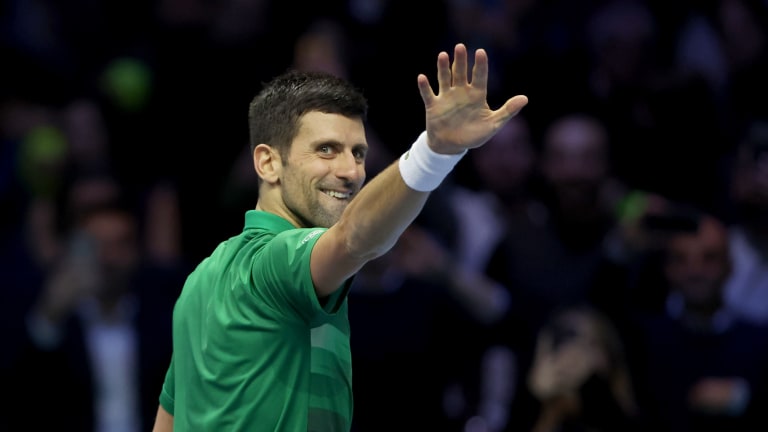ATP Finals
Every time Novak Djokovic needed a point, he had the shot to win it in ATP Finals victory over Taylor Fritz
By Nov 19, 2022ATP Finals
'At times, I couldn’t have played better': With ATP Finals win, Jannik Sinner finished a No. 1 season worthy of the Big 3
By Nov 18, 2024ATP Finals
On top in Turin! Jannik Sinner beats Taylor Fritz to win season-ending 2024 ATP Finals title
By Nov 17, 2024ATP Finals
Preview: Jannik Sinner or Taylor Fritz, who wins the 2024 ATP Finals?
By Nov 16, 2024ATP Finals
Jannik Sinner puts on a clinic against Casper Ruud in returning to ATP Finals title match
By Nov 16, 2024ATP Finals
ATP Finals Semis Previews: Alexander Zverev vs. Taylor Fritz, Jannik Sinner vs. Casper Ruud
By Nov 15, 2024ATP Finals
Casper Ruud clinches final semifinal berth at 2024 ATP Finals, faces Jannik Sinner next
By Nov 15, 2024ATP Finals
Alexander Zverev clinches semifinal berth, defeats Carlos Alcaraz at ATP Finals
By Nov 15, 2024ATP Finals
Rafael Nadal never won the ATP Finals, but it's not like he didn't have success there
By Nov 15, 2024ATP Finals
Jannik Sinner goes 3-0 in 2024 ATP Finals round robin, heads to semis over Daniil Medvedev
By Nov 14, 2024ATP Finals
Every time Novak Djokovic needed a point, he had the shot to win it in ATP Finals victory over Taylor Fritz
The Serbian found a way to make it to the finish line first—by a nose—in each set during Saturday's 7-6 (5), 7-6 (6) success.
Published Nov 19, 2022
Advertising

Djokovic has won eight of the nine sets he's played on his way to an eighth championship appearance at the ATP Finals.
© Getty Images